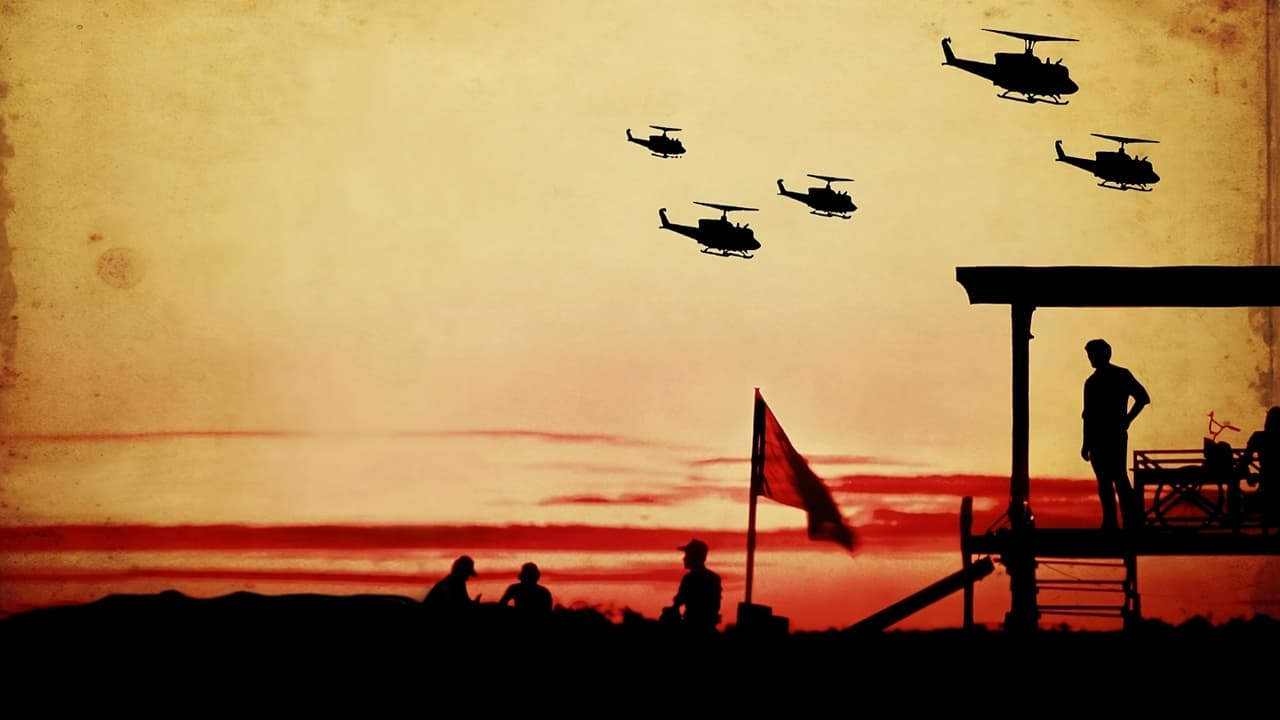

It's alright if you don't know your history before you watch The Killing Fields, Roland Jaffe's film that was nominated for eight Oscars and won eight BAFTAs in 1985; you'll gain a wealth of knowledge from watching the movie. It's a true story, focusing on the experiences and friendship of New York Times journalist Sydney Schanberg, played by Sam Waterston, and Cambodian journalist Dith Pran, played by Haing S. Ngor, during the Cambodian Civil War in the 1970s.Beaten out by the incredibly overrated Amadeus, The Killing Fields should have absolutely won Best Picture. Not only is it a spectacular war picture, with surprises around every corner, realistic special effects and makeup, and harrowing struggles that will make you cringe and compel you to keep watching, but it's a beautiful, moving story of love and friendship. The two lead actors have such realistic chemistry together, it's sometimes difficult to separate them from their fictional roles. Haing S. Ngor lived a very sad life, and much of the film mirrors his own life experiences. The horrors he lives through in the film—and in real life, if you choose to look up his tragic backstory, which I don't really recommend—will bring you to tears more times than you'll be able to count.The Killing Fields will take you on an emotional roller-coaster, from fear to awe, horror, hope, sorrow, and inspiration. Some war movies are too upsetting to want to watch over again, but you're able to appreciate the craftsmanship and acting behind it. While the acting and production are fantastic, this is also a film that you can easily add to your home collection, watching it again and again with friends who haven't yet, so you can relive the emotions you felt during your first viewing. I've seen it three times, and each time, it has just as great an impact on my heart as the first. This is a modern classic that shouldn't be missed.
... View MoreWhen I first saw this movie I loved it. Now, 32 years later, it looks dated and I wonder why I liked it so much in the first place? This is Hollywood getting holier than thou again. And surprise, the enemy is the Khmer Rouge who are initially welcomed by the Cambodians. It turns out to be a, be careful what you wish for because you just may get it.On the one hand Hollywood rarely, if ever, criticizes Communism. On the other hand, the film blames Nixon for the entire thing whereas the US involvement in Indochina was cranked up due to the Gulf of Tonkin incident. Later the Communist Viet Cong / NVA soldiers would flee into Cambodia as a means of escaping US attacks. But that's Hollywood - judge, jury, and executioner.The main issue I have though is the acting. It seems a bit forced and substandard the second time around. I'm not saying acting is better today, I am saying this was not top-shelf stuff.
... View Morenot great . not spectacular. only special. because it is easy to define it in many ways, I hope, the basic virtue is to remember. to be a testimony. realistic. honest. using admirable cinematography, showing a painful, ignored episode from the contemporary history. it is not a film about war, it is far to be an eulogy or basis of a verdict. it is only a simple adaptation of the experiences of a journalist, part of a dramatic change of history, surviving to one of the most terrible political regime of the XX century. and the great good point for the movie is to have the right , wise manner to present this tragic events. the film remains special, after few decades, for the force of message first. for the high humanism. and for the precise science to reflect the spirit of a period.
... View MoreThe 1970's was a time of tremendous political upheaval in the US. In The Killing Fields, Cambodia is the canvas, while politics, journalism, friendship, and the human will are the paints used to depict an in-your- face, true story of survival against all odds. The US government takes its lumps as we abuse, then abandon a people who are then embroiled in a bloody internal cleansing that kills several million Cambodians. The journalists Sydney Schanberg (Sam Waterston) and local Dith Pran (Dr Ngor) capture and transmit the daily atrocities back to the states for US consumption. Dr Ngor was an actual survivor of the real Killing Fields. How he had he courage to portray Dith Pran, I don't know, but it speaks to the courage he had, and apparently to promises he made to his wife to educate the world about what happened in Cambodia. That Dr Ngor won an Academy Award is astonishing, but after you watch this movie, you really feel like you lived through this horrific event because of Ngor's tremendous performance.Sam Waterston also turned in a strong performance as Shanberg. He realizes he took advantage of Pran as a means to his own ends, but by then, it's too late. Waterston was at his best when he stands toe to toe with Army reps, like Craig T. Nelson (from Coach), or the politicians. But near the end, when he has to take criticism from his own colleague who was with him (terrific performance by John Malkovich by the way), Waterston has no valid reply, and he knows it.The war scenes are incredibly real, the suffering in the killing fields is palpable, and the hopelessness of those trying to stem the entire unimaginable craze of hatred overtaking the Khmer Rouge is smothering.Some scenes are a bit long, and the ending would have been better without that particular song,which introduced a bit too much of a Hollywood ending at just the wrong time. Still, this is a must-see film that will stay with you long after the credits roll. Enjoy.
... View More